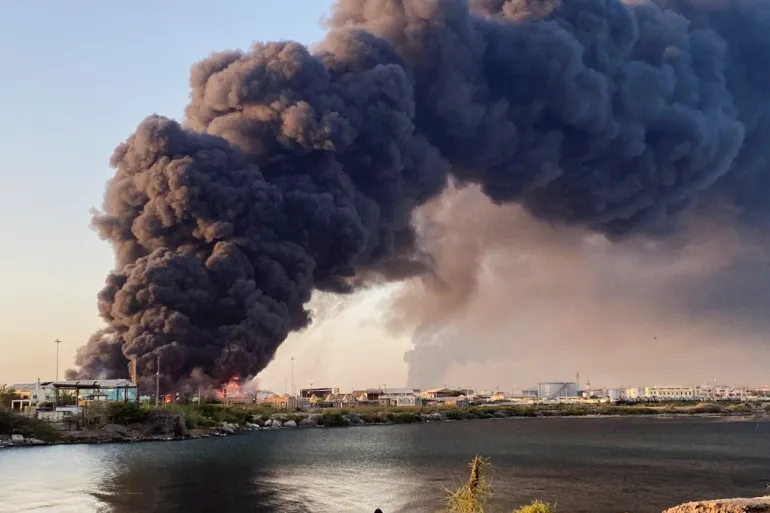Sudan’s civil defense forces declared on Sunday that they had successfully contained fires that erupted at the main fuel depot and several other key locations in Port Sudan, a strategic city on the Red Sea. The fires, ignited by a drone strike on Monday, involved large quantities of petroleum reserves and spread to warehouses filled with fuel. The Civil Defence Directorate, headed by Osman Atta, described the containment operation as intensive, relying on foam materials and a carefully executed plan to bring the inferno under control.
Port Sudan, the main entry point for humanitarian aid into Sudan, had long been considered a safe haven amidst the brutal two-year conflict between the Sudanese army and the paramilitary Rapid Support Forces (RSF). However, in recent days, the city has become a target of repeated drone strikes, with key facilities, including the sole international civilian airport, the largest operational fuel depot, and the main power station, suffering damage.
These attacks, blamed on the RSF, have escalated in the past week, significantly impacting the city’s infrastructure and exacerbating an already dire humanitarian crisis. The strikes not only endanger civilian lives but also threaten the flow of aid into a country already grappling with devastating conflict. According to the United Nations, over 13 million people have been displaced by the fighting, and tens of thousands have lost their lives.
The situation in Port Sudan is increasingly precarious. Military sources reported that air defenses in the towns of Jebeit and Sinkat, located about 120 kilometers from the city, intercepted two drones targeting facilities in those areas. Additionally, there were reports of drone strikes hitting Atbara, a northern city in Sudan’s River Nile state, further underscoring the ongoing volatility.
UN Secretary-General Antonio Guterres warned that the drone attacks could worsen the humanitarian crisis, complicating aid operations and deepening the suffering of millions. As the conflict between the army and the RSF shows no signs of abating, the impact on Sudan’s civilian population remains catastrophic.

